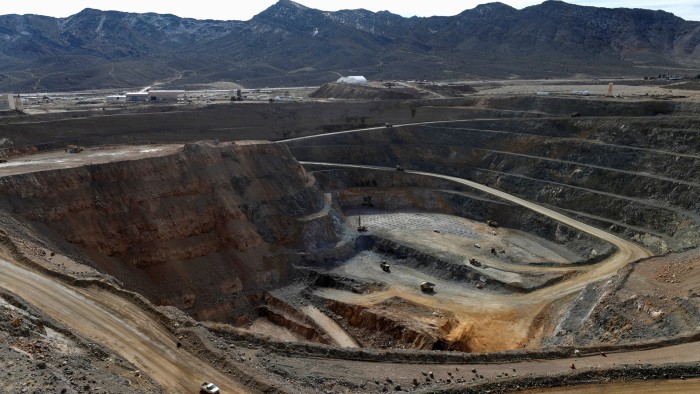Unlock the Editor’s Digest for free
Roula Khalaf, Editor of the FT, selects her favourite stories in this weekly newsletter.
The Pentagon is making a $400mn direct investment in a US rare earths producer, in an unusual arrangement highlighting the Trump administration’s determination to break Chinese dominance of critical minerals and bolster domestic supply chains.
MP Materials, on Thursday said the Pentagon would become its largest shareholder, taking a 15 per cent stake in the company, as well as investing billions of dollars to build a 10,000 metric tonne magnet manufacturing facility — expected to begin preparing for operations in 2028.
“This initiative marks a decisive action by the Trump administration to accelerate American supply chain independence,” said James Litinsky, founder and chief executive of MP Materials.
The Pentagon did not immediately respond to a request for comment.
Litinsky owns more than 14mn shares in MP Materials. The company’s share price jumped more than 48 per cent in response to the news, adding $200mn to his personal net worth.
It is rare for the US government to make direct investments in businesses. It does so on occasion to support development of technologies crucial to national interests, or in extreme circumstances to save systemically important companies from failure, such as Wall Street banks during the financial crisis.
MP Materials, based in Las Vegas, operates the US’s only rare earth mine in Mountain Pass, California, extracting rare earths such as neodymium and praseodymium, which are essential for making weapons systems and electric vehicles.
Rare earth magnets are critical for weapons systems including the F-35 Lightning II fighter jet, unmanned Predator drones and the Virginia- and Columbia-class submarines. One F-35 needs 900 pounds of rare earths.
They are also found in Tomahawk missiles and bombs for a guidance system developed jointly by the US Air Force and Navy.
Washington considers its reliance on China for rare earths to be a national security risk. The mining and processing of rare earth minerals is heavily dominated by China, which controls 55 per cent of global mining capacity and 85 per cent of refining.
In April Beijing placed export restrictions on seven rare earth elements and permanent magnets, causing major disruptions in the car, defence and technology industries and a 75 per cent drop in magnet exports. At the time, US interior minister Doug Burgum said the White House was deliberating investments in domestic critical minerals producers.
The Pentagon has pumped more than $430mn into establishing domestic rare earths supply chains since 2020, including the separation and refinement of elements mined in the US and the conversion of those refined materials into metals and magnets.
The Pentagon has agreed to buy $400mn of a newly created series of the group’s preferred stock that can be converted into common shares at an initial conversion price of $30.03 a share. The Department of Defense has a warrant to purchase additional shares.
“The preferred stock tool is an unprecedented tool for the Department of Defense to hold equity in strategic minerals projects,” said Gracelin Baskaran, director of the critical minerals security programme at the Center for Strategic and International Studies, a think-tank. “Government equity is a powerful tool.”
Recommended
The deal also includes terms for an offtake agreement, under which the defence department will guarantee the purchase of all batteries produced by the facility for the next 10 years. MP Materials will also upgrade the facilities at its Mountain Pass site. The company was awarded $45mn in Pentagon funding between 2020 and 2022, to restart the mine after a 2015 bankruptcy.
Central to the agreement is a price floor for neodymium-praseodymium, which will be set at $110 a kilogramme, ensuring the company will not suffer losses on its production deal if supplies suddenly surge. Western miners have complained Chinese rivals flood the market with excess supply and enjoy generous state support, artificially lowering their costs.
“This is the kind of long-term commitment needed to reshape global rare earth supply chains,” said Neha Mukherjee, rare earths research manager for Benchmark Mineral Intelligence. “The price floor alone could enable junior developers and marginal producers to enter the market — a game-changing policy move.”

